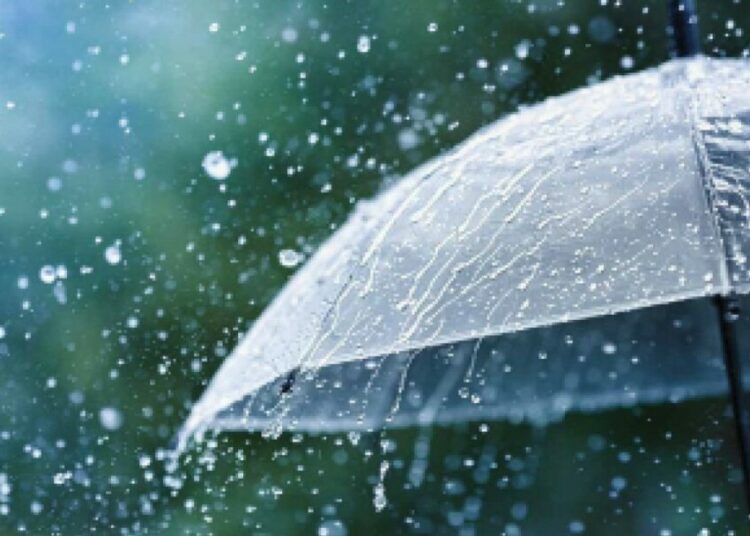The rainy season in Nigeria is more than just cooler weather and greener scenery. It also signals a rise in illnesses and discomforts that thrive in wet, humid conditions. Every splash in a pothole-ridden street, every soaked shoe, and every power cut from thunderstorms carries potential health consequences, especially for those already managing chronic illness or weakened immunity.
During this period, our bodies are exposed to new health risks that stem from water contamination, poor drainage systems, damp clothing, and stagnant pools of water that become breeding grounds for mosquitoes. While the rain is part of our natural cycle and agricultural prosperity, it also demands a heightened sense of health awareness.
Common Health Challenges During The Rainy Season:
- Cold, Flu, Respiratory Infections:
Fluctuating temperatures, wet clothing, and increased indoor crowding lead to more frequent upper respiratory infections. Runny noses, sore throats, and chesty coughs become common complaints. For asthmatics, humid air and mold growth can trigger attacks.
- Malaria And Mosquito-Borne Diseases:
According to the World Health Organization (WHO), Nigeria accounts for twenty-seven per cent of global malaria cases. The rainy season aggravates this, as stagnant water provides ideal breeding sites for mosquitoes. The risk of dengue and yellow fever also increases.
- Typhoid And Cholera:
Poor sanitation and contaminated drinking water are key culprits. Heavy rains flood sewage systems, allowing bacteria to infiltrate public water sources. Symptoms like diarrhea, vomiting, and fever are warning signs and should be treated urgently.
- Fungal And Skin Infections:
Wearing damp clothing for long periods or using wet towels can cause fungal infections, especially in folds like underarms, between toes, and around the groin. Ringworm, athlete’s foot, and candida are common examples.
- Joint Pain And Arthritis Flare-ups:
Drops in barometric pressure and cold, damp conditions trigger flare-ups in those with arthritis and other musculoskeletal conditions.
Home Remedies and Prevention Tactics
Nature has blessed us with ingredients and routines that can help us cope with and even prevent many of these ailments.
For Colds And Coughs: Steam inhalation with eucalyptus or menthol oil opens airways. Drinking warm water infused with ginger, lemon, and honey boosts immunity.
For Malaria Prevention: Clear stagnant water from surroundings, sleep under insecticide-treated mosquito nets, spray insecticides regularly, and wear protective clothing.
For Waterborne Diseases: Always drink boiled or filtered water. Wash fruits and vegetables properly. Avoid food from unhygienic sources during this period.
For Fungal Infections: Dry off completely before dressing. Use antifungal powders or creams. Wear loose, breathable fabrics like cotton.
For Joint Pain: Apply heat packs, take warm baths, and do light stretching exercises to ease stiffness.
The World Health Organization advises increased public health vigilance during rainy seasons. Urban areas are particularly at risk. Communities are encouraged to clear gutters, avoid contact with floodwater, and prioritize sanitation. Nutritionists recommend immune-supporting diets rich in Vitamin C (from citrus fruits, guava, pineapple), zinc (beans, meat), and iron (leafy vegetables, liver). A strong immune system is the first line of defense against seasonal illnesses.
It’s not just our bodies that feel the rain; our minds do too. Gloomy weather, restricted movement, and recurring illness can cause low moods or fatigue. Staying active indoors, eating well, keeping spaces brightly lit, and maintaining routine social connections help keep the blues at bay. A Time to Refresh Habits: The rainy season doesn’t have to mean three months of poor health. With proactive habits, simple hygiene, and awareness, we can safeguard ourselves and our families. Let the rain wash away the dust, not your peace of mind or physical wellbeing. Stay dry, stay warm, stay hydrated and let every drop of rain remind you to take one more step toward health. Rain is a blessing, but it should not come with avoidable health consequences. With mindful habits, proper hygiene, and the right remedies, you can stay healthy and safe throughout the rainy season. Let’s make wellness intentional even when the clouds pour.





